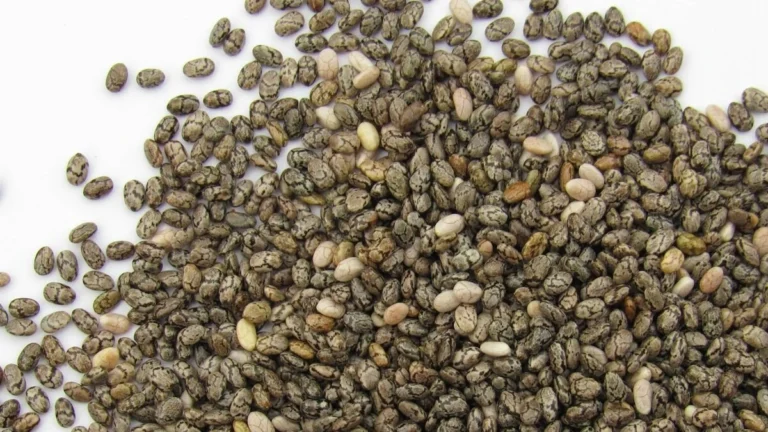Do you drink enough water every day during summer? Many people think dehydration just causes thirst or fatigue, but it can actually increase your risk of serious health problems like heart disease and type 2 diabetes. Research shows that staying well hydrated is important for your heart, blood sugar levels, and overall health.
WHY DEHYDRATION IS MORE DANGEROUS THAN YOU THINK
When your body lacks water, it activates water conservation systems, particularly the renin-angiotensin system (RAS), which can have lasting negative effects on your health.
Research shows that persistent or even mild dehydration is linked with increased body weight and metabolic dysfunction, including cardiovascular diseases and diabetes.
SIGNS AND SYMPTOMS OF DEHYDRATION
Most people don’t realize they’re mildly dehydrated. Here are signs that clearly indicate you might not be getting enough fluids:
• Dark yellow urine
• Infrequent urination
• Fatigue or low energy
• Headaches
• Dry mouth, lips, and skin
• Muscle cramps
• Dizziness
• Confusion or brain fog
• Increased thirst
• Elevated heart rate
THE INFLAMMATION FACTOR
Inflammation is a common risk factor for metabolic disorders, including diabetes and cardiovascular diseases. Let’s explore some negative consequences associated with chronic dehydration:
• Chronic dehydration creates a pro-inflammatory environment in the body that damages blood vessels and promotes atherosclerosis, or hardening of the arteries.
• Dehydration activates inflammatory signaling pathways in endothelial cells (the cells lining your blood vessels), promoting plaque development.
• Inadequate hydration raises inflammatory markers such as C-reactive protein (CRP), which is strongly linked to heart disease.
• Dehydration impairs blood vessel function by reducing their ability to dilate properly, lowering blood flow and increasing stress on the cardiovascular system.
HOW DEHYDRATION AFFECTS YOUR HEART HEALTH
Dehydration makes your blood more concentrated and thicker, which is harder for the heart to pump. This added strain increases your risk of heart attacks and other cardiovascular problems in several ways:
• Viscous and Thicker Blood: When you’re dehydrated, blood can become more concentrated and viscous. These puts added strain on the heart and blood vessels, potentially leading to high blood pressure. Drinking at least 8 to 10 glasses of water daily helps thin the blood, making circulation more effective.
• Electrolyte Imbalances: The heart needs balanced electrolytes (like sodium and potassium) to beat properly. Dehydration can disrupt this balance, leading to irregular heartbeats.
• Angiotensin II Elevation: Dehydration raises levels of a hormone called Angiotensin II, which tightens blood vessels and increases blood pressure. Many heart medications work to block this hormone.
A study in Frontiers in Cardiovascular Medicine found that people with heart rhythm problems had worse outcomes when they were dehydrated.
DEHYDRATION AND DIABETES
Dehydration and diabetes are closely connected. The relationship works both ways: diabetes can cause dehydration, but research now shows that dehydration may also contribute to diabetes development.
Here’s how:
• Higher Blood Sugar: Studies demonstrate that dehydration can raise blood sugar levels, a hallmark of diabetes. Drinking 8–10 glasses of water daily help dilute the blood and supports glucose control.
• Insulin Resistance: Chronic dehydration reduces cell volume, impairing insulin’s ability to stimulate glucose uptake. This creates insulin resistance, a key factor in type 2 diabetes.
• Water Timing with Meals: Drinking too much water immediately after meals can slow digestion and might temporarily raise blood sugar. A better strategy is to drink water 30 minutes before or 1 hour after meals.
• Poor Energy Metabolism: Dehydration, along with elevated angiotensin II, harms mitochondria (the energy-producing parts of cells). This disruption increases diabetes risk by impairing normal metabolism.
A review in Frontiers in Nutrition explains that “as the cell gets more and more dehydrated, the metabolism of free fatty acids and amino acids to pyruvate and/or acetyl-CoA decreases, producing a dependence on glucose as the main fuel source.” This metabolic shift mirrors what happens in obesity and diabetes.
HOW TO STAY PROPERLY HYDRATED
Good hydration is easy when you build it into your daily routine. Here are some simple tips:
1. Drink before your thirsty thirst means you’re already mildly dehydrated.
2. Set a daily water goal: aim for 2–3 liters (8–12 cups) of fluids daily.
3. Eat water-rich foods such as watermelon, cucumber, and oranges.
4. Cut back on dehydrating drinks such as caffeine, alcohol, and sugary beverages.
5. Check your urine color pale yellow means you’re well hydrated.
6. Drink more when you’re sick, as fever and vomiting increase water loss.
7. Use electrolyte drinks when needed after heavy sweating or illness, water with electrolytes helps restore balance.
HIGH-RISK GROUPS WHO NEED EXTRA HYDRATION ATTENTION
Some groups are at higher risk of dehydration and should take extra care:
• People with diabetes, as inadequate water intake can raise blood sugar levels.
• Those with heart disease, especially if taking diuretics that increase fluid loss.
• Older adults, since the thirst sensation diminishes with age.
• Athletes and active individuals, who lose significant amounts of water through sweat.
• People in hot climates, where fluid loss is greater.
• Anyone taking medications that cause fluid loss.
CONCLUSION
Chronic mild dehydration is a hidden but serious risk factor for heart disease and diabetes. The encouraging news is that it’s easy to fix. Drinking enough water each day is one of the simplest ways to protect your health.
Remember, good hydration is one of the simplest forms of prevention and prevention is often better than cure. Consider talking to your doctor for personalized guidance, especially if you have any health condition that affects your fluid needs.
FAQs ON DEHYDRATION, DIABETES, AND HEART HEALTH
1. How much water should I drink daily?
Most healthy adults should aim for 2–3 liters (8–12 cups) of fluids per day. Needs may increase with exercise, hot weather, or illness.
2. Can dehydration really increase blood sugar?
Yes. Studies show dehydration makes blood more concentrated, which can raise glucose levels and worsen insulin resistance.
3. Does coffee or tea count toward hydration?
Yes, but in moderation. While caffeinated drinks provide fluids, excessive intake can promote fluid loss. Balance them with plain water.
4. Who is at the highest risk of dehydration?
People with diabetes, those with heart disease, older adults, athletes, and individuals living in hot climates need to be extra careful about hydration.
5. Can drinking water prevent diabetes?
Water alone won’t prevent diabetes, but proper hydration supports healthy metabolism, reduces insulin resistance, and may lower long-term risk.
DISCLAIMER
This article is for educational purposes only and is not a substitute for professional medical advice, diagnosis, or treatment. Always consult your doctor or healthcare provider for personalized guidance, especially if you have diabetes, heart disease, or are taking medications that affect hydration.
CALL TO ACTION
Staying hydrated is one of the simplest and most effective ways to protect your heart and manage your blood sugar. Make water a daily habit, listen to your body’s needs, and encourage your loved ones to do the same. Small changes today can prevent serious health problems tomorrow.
Read more: https://pharmahealths.com/amla-a-superior-fruit-for-superior-health/
REFERENCES
1. National Institutes of Health (NIH). “Water, Hydration and Health.” Nutrition Reviews.
2. Frontiers in Cardiovascular Medicine. “Hydration and Outcomes in Patients with Cardiac Arrhythmias.”
3. Frontiers in Nutrition. “Hydration and Cellular Metabolism: Implications for Diabetes and Obesity.”
4. Mayo Clinic. “Dehydration: Causes, Symptoms, and Treatment.”
5. American Heart Association. “Hydration and Heart Health.”







